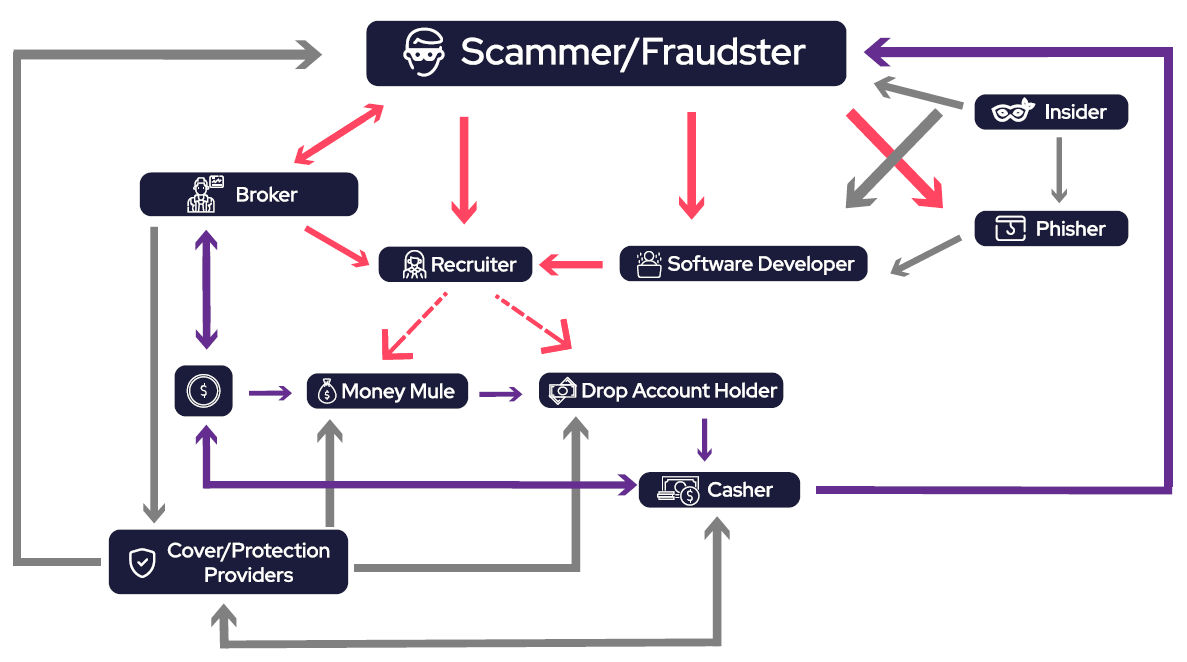
Mastering Online Fraud Prevention with SOCRadar’s Cyber Bible
The digital transformation of commerce has brought unparalleled convenience and opened the floodgates to an array of cyber threats. SOCRadar’s comprehensive E-Commerce Cyber Bible report sheds light on this dark side of digital commerce, offering crucial insights for effective online fraud prevention.
Alarming Rise of E-Commerce Threats
According to the report, e-commerce platforms face an escalating risk of cyberattacks. The year 2023 saw an unprecedented use of impersonation domains, primarily those with “.com” extensions, a tactic used by cybercriminals to deceive and defraud online shoppers. The report also reveals a significant increase in phishing attacks, with a record number observed in December 2021 alone. These findings highlight the critical need for robust online fraud prevention tools to safeguard consumer trust and business integrity.
Evolution of Cybercriminal Strategies

dynamics in orchestrating a comprehensive cyber fraud operation.
Concerning development, the report points out that nearly 80% of threat actors have adopted HTTPS in their schemes, making fraudulent sites appear legitimate and complicating detection efforts. The proliferation of gift card code generators and credit card checker software further indicates a growing sophistication in online fraud tactics. This evolving threat landscape necessitates advanced online fraud prevention solutions that adapt and respond to these changing strategies.
Credential Theft: A Pervasive Threat
One of the most alarming findings in the report is the extensive collection of credentials stolen by stealer malware, with nearly 5 billion logs recorded. This trend is particularly dangerous for e-commerce, as these credentials often include user login information for online shopping platforms. The report’s data underscores the importance of implementing comprehensive online fraud prevention solutions to protect both businesses and consumers from such invasive threats.
Role of Cyber Threat Intelligence in Online Fraud Prevention
The report emphasizes the crucial role of cyber threat intelligence in the fight against online fraud. By understanding the mechanisms behind phishing, credit card fraud, and other tactics, businesses can leverage sophisticated online fraud prevention tools to effectively counter these threats. Intelligence-driven approaches are vital to staying ahead of cybercriminals and maintaining a secure e-commerce environment.
Given the complexity of the current threat landscape, the report advocates for adopting advanced online fraud prevention tools. These tools, often powered by AI and machine learning, are essential for detecting and responding to sophisticated cyber threats. They provide a vital layer of security for e-commerce platforms, ensuring transaction integrity and consumer trust.
Human Element in Online Fraud Prevention

The report also highlights the importance of educating both employees and consumers about safe digital practices. This human-centric approach is fundamental to building a comprehensive defense against online fraud. Regular training and awareness campaigns can significantly enhance the effectiveness of technical fraud prevention measures.
Future Trends in Online Fraud and Prevention Strategies
Looking forward, the report suggests that the landscape of online fraud will continue to evolve, with cybercriminals adopting new technologies and tactics. E-commerce businesses must stay informed about these trends and continuously adapt their online fraud prevention strategies to stay ahead of potential threats.
In conclusion, SOCRadar’s E-Commerce Cyber Bible report is a vital resource for anyone involved in the digital commerce sector. It calls for a proactive stance on fraud prevention, combining advanced technological solutions with heightened vigilance and education. As e-commerce continues to grow, ensuring robust fraud protection will be key to safeguarding its future.


































